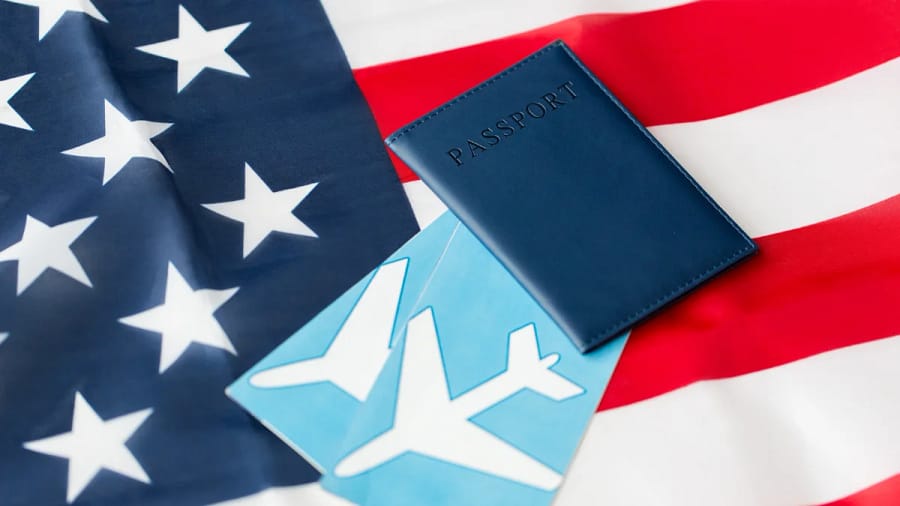


Visiting the US involves complying with entry regulations, including visa requirements and travel insurance. To begin, determine your appropriate visa type, complete the visa application, and schedule an interview at the nearest US embassy or consulate. While travel insurance is not mandatory for most US visas, it is highly advisable.
One must choose a robust plan with sufficient medical coverage, trip protection, and emergency evacuation. For Visa Waiver Program travelers, having travel insurance is a wise precaution. Ensure your visa is valid and, upon arrival, carry essential documentation, including your insurance policy. By adhering to these regulations, you can enjoy a hassle-free visit to the US.
Visa requirements are a crucial aspect of international travel, particularly when planning a trip to the US. Understanding these requirements is essential to ensure a smooth and legally compliant journey. Here is a comprehensive look at visa requirements:
1. Visa types: The US offers various visa categories based on the purpose of your visit. These include tourist visas (B-2), business visas (B-1), student visas (F-1), exchange visas (J-1), work visas (H-1B), and more. Each visa type has specific eligibility criteria and application processes.
2. Visa application: To obtain a US visa, applicants must complete the appropriate visa application form (DS-160 for most non-immigrant visas), which can usually be done online. After completing the form, applicants receive a confirmation receipt with a barcode.
3. Visa fee: A non-refundable visa application fee is typically required for processing. The fee varies depending on the visa category and is subject to change.
4. Visa interview: Most applicants are required to attend an in-person visa interview at the nearest US embassy or consulate. During the interview, applicants will answer questions about their intended travel, background, and visa eligibility.
5. Visa approval: If your visa application is approved, a visa sticker is placed in your passport, indicating the visa type and validity period. However, approval is not guaranteed, and a visa can be denied for several reasons, including insufficient documentation or concerns about the applicant’s intentions.
No, travel insurance is not mandatory to enter the US. The US government does not require travelers to have travel insurance as a visa requirement or entry regulation. However, while it is not a formal requirement, having travel insurance is highly advisable for visitors to the US. This is because the US has one of the most expensive healthcare systems in the world, and medical treatment can be incredibly costly.
Chiranth Nataraj, the founder of Visitor Guard®, says, ‘Having travel insurance provides several benefits, including coverage for medical emergencies, trip cancellations or interruptions, delayed or lost baggage, and other unforeseen events that can disrupt your travel plans.’
‘It offers financial protection and peace of mind, especially when facing unexpected situations during your trip. While it is not mandatory, travel insurance is a prudent choice for anyone planning to visit the US or any other destination, as it helps travelers mitigate financial risks and ensures they receive the necessary assistance in case of emergencies,’ he added.
‘I recently traveled to the US with my family and purchased travel insurance through Visitor Guard®. It was a game-changer. We ended up selecting a plan that offered great medical protection at a reasonable price. During our trip, we faced a minor medical issue, and our insurance covered it smoothly. Visitor Guard® made the whole process stress-free, and I highly recommend it to fellow travelers.’
Emily R.
‘As a solo traveler exploring the US, I wanted to ensure I had comprehensive travel insurance. Visitor Guard® was incredibly informative. The executive explained the intricacies of travel insurance and provided tips on finding the right policy. I followed the guidance, purchased my insurance, and had a worry-free trip. I am thankful for the valuable insights, which made me feel confident and protected throughout my journey.’
Michael S.
You should consider buying a comprehensive travel insurance policy that includes coverage for medical emergencies, COVID-19, evacuations, repatriation, and more.
It is best to purchase travel insurance before your trip begins because the coverage starts right after the effective date of the policy.
Travel insurance is not a requirement for obtaining a US visa or ESTA approval. However, having insurance can demonstrate financial responsibility.
To select the right policy, consider your specific needs, the duration of your stay, and the activities you plan to undertake. Compare policies from reputable providers to find the best fit.
Insurance requirements vary by visa category, but having adequate health insurance coverage is often a requirement for students and certain work visas. Tourist visas have no such insurance requirements, but having insurance certainly is wise.
Complying with US entry regulations, including visa requirements, is a crucial step for travelers coming to the US. Travel insurance can be a valuable tool in meeting these requirements, offering not only a means to satisfy health and financial obligations but also providing peace of mind. To know more about visitor insurance, call Visitor Guard®.